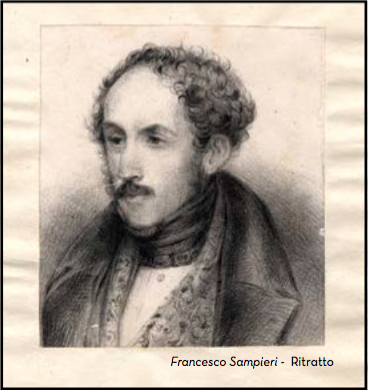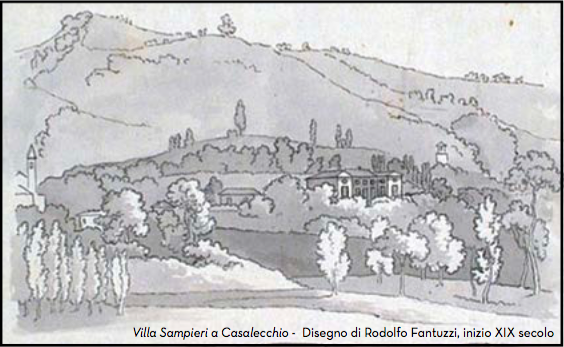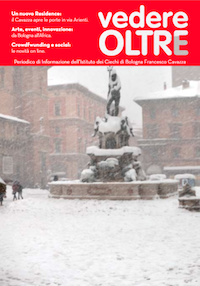Bolognese journal L'Abbreviatore wrote in 1820 that Mr. Marchese Sampieri who is not lacking either splendour of lineage, or wealth, or youth, or fortune of any sort, has dedicated all his noble time of leisure cultivating music, as a musician, piano accompanist and composer. Various productions are underway in Italy and abroad with the notes of this noble writer, who has managed to combine the liveliness of melodies to the orchestra's brightness giving prestige and sentiment to his works and effect.
Born in Bologna on September 13, 1790, the eldest son of Marquis Luigi, owner of a prestigious collection of paintings, a couple of palaces in the city, a villa with a park in the Chiusa del Reno a Casalecchio, Francesco Sampieri, orphaned at age 15, became, in those years filled with political and patriotic fervour, one of the protagonists of Bologna's cultural and musical life.

Member of the Accademia Filarmonica and composer in 1807, his music was played and appreciated in salons and academies in the city as well as in his salon of culture which opened in 1808 in his Bolognese palace where were welcomed visiting artists in city theatres for praiseworthy and acclaimed musical soirées. When, in 1810, a group of nobles enlightened by Napoleonic ideals founded the Società del Casino in the Lambertini palace, Sampieri became the Director of Music and, thanks to him, the musical events held Sunday mornings became the pride of Bolognese life for almost 40 years. In fact, thanks to Sampieri, with dilettantes belonging to Bologna's noble families came great international names (from Malibran to Colbran to Strepponi, from Paganini to Liszt). As was written in a paper of the time, he was held in the highest honour by the most distinguished individuals in the art of music in Europe. He knew when to appropriately take the opportunity of their presence in this city to ask, with his most graceful manners, that they kindly reveal their talent to this respectable society. And while he was organizing concerts in Bologna, his melodramas were presented in Italy: The Trionfo di Emilia, in Rome and Florence (in 1818 and in 1821), Valmiro e Zaida and La foresta di Ostropl in Naples (in 1821), Gl'Illinesi in Bologna and Pompeo in Siria at the Scala in Milan (in 1825), more or less successful, but always with the great voices of the time.

A tireless traveller, Sampieri, at the premiere of Cinderella in Rome, in February 1817, met Rossini with whom, during the return trip to Bologna, he stopped in Spoleto where during An Italian in Algiers, he participated in the performance, sitting at the harpsichord. He had an unfaltering friendship with Rossini, who had his Bolognese home built right next to his palace. In 1830, he even intervened during The Turk in Italy in the theatre built specially in his home. Rossini was the protagonist of a beautiful name-day party organized by Sampieri in the magnificent park of the villa in Casalecchio, an event profiled in every city newspaper.
In the turbulent period of the First War of Independence, the Società del Casino was closed, and Sampieri, as did Rossini in 1848, fled from Bologna and stayed in Paris where he had distinguished relations with men of sciences, and patrons of art to whom he taught. He obtained French citizenship with Emperor Decree dated August 5, 1861, in Saint-Cloud. However, unlike his friend, he was not able to find venue and recognition during the years of Napoleon III, so he returned, old and sick, to his hometown, where he died in 1863.





.png)